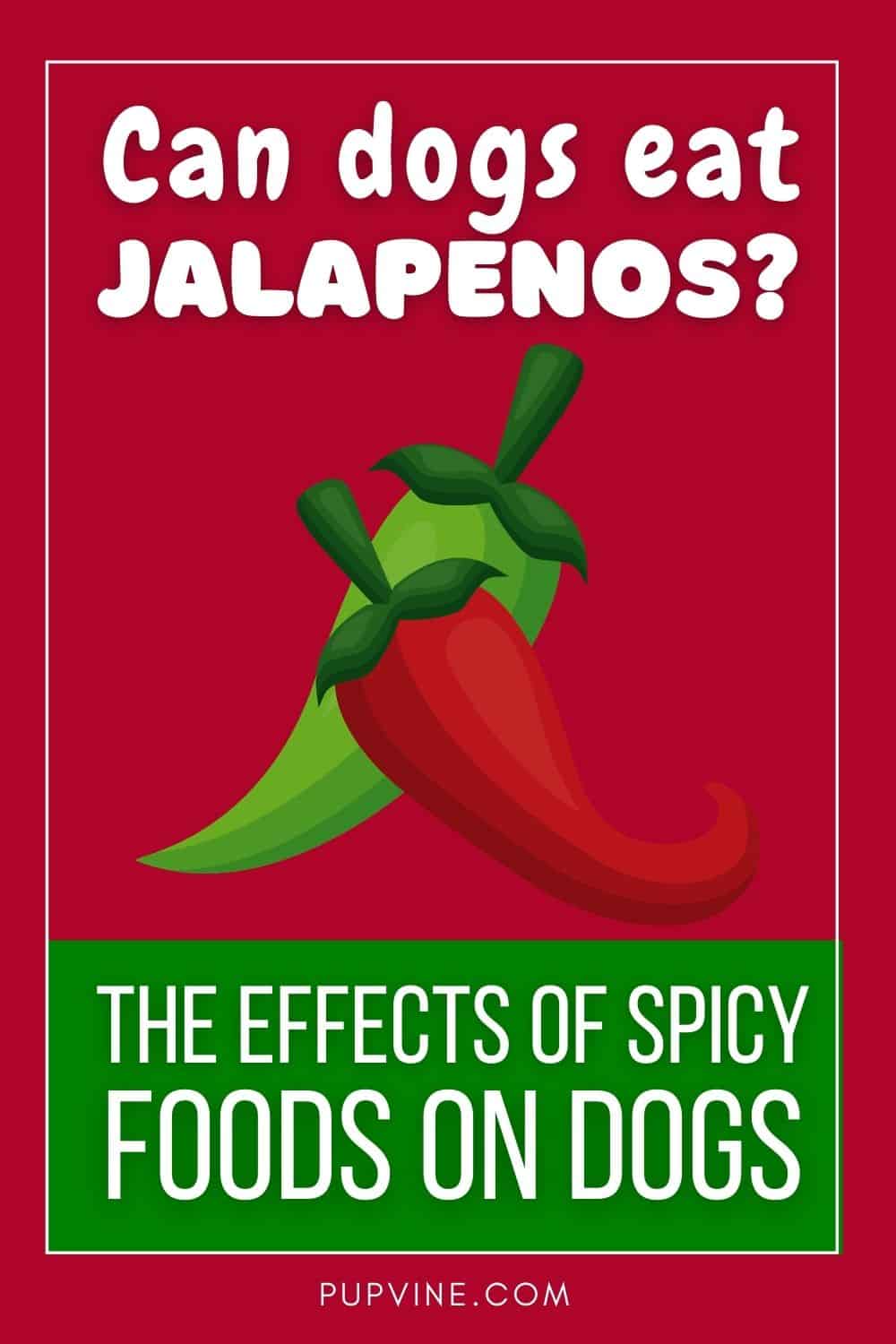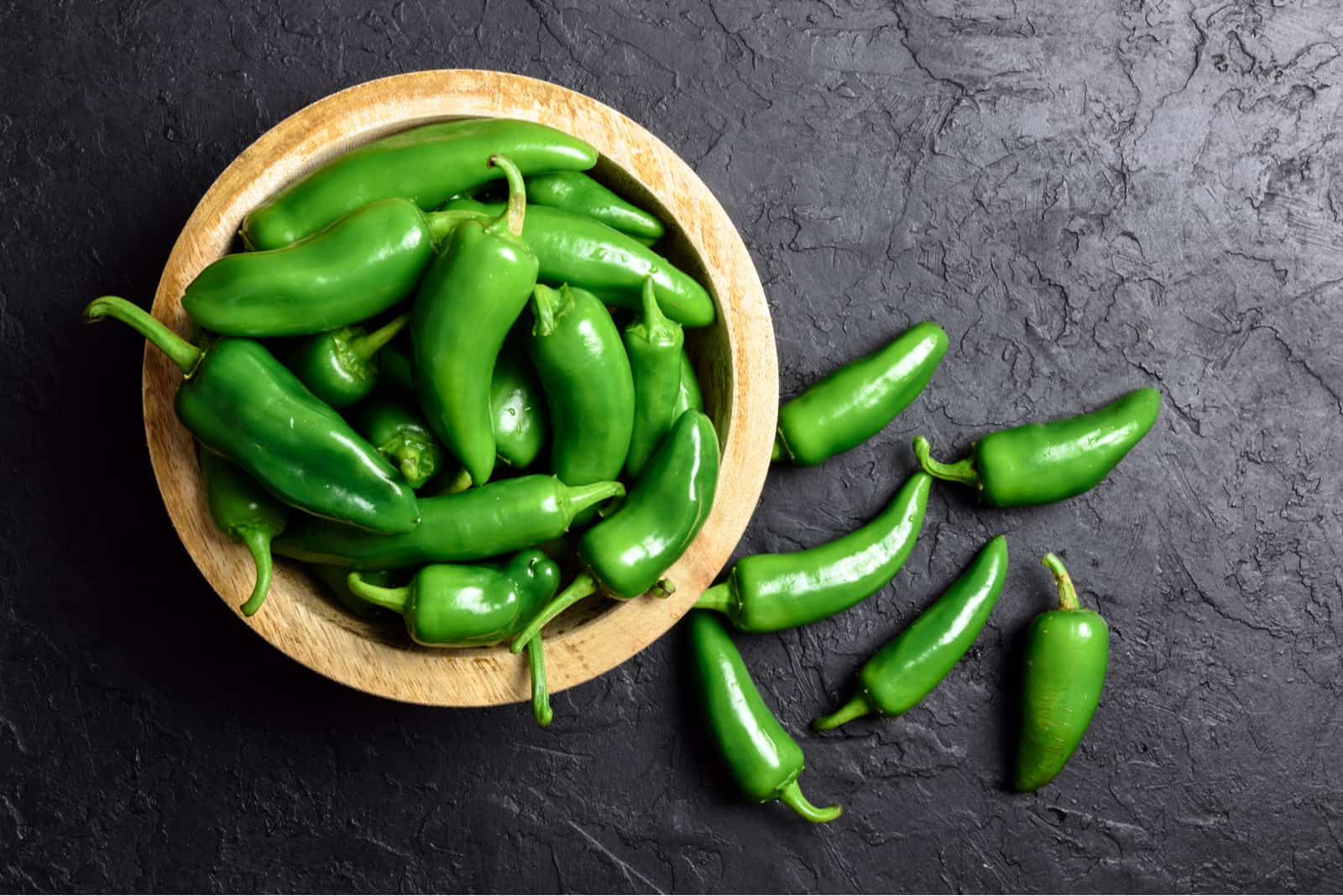You could ask the same question about most human foods. The fact is, dogs can eat jalapenos, but the real question is whether they should.
As dog owners, it’s only natural to want to spoil our pooches with treats, and to share our food with them when they watch us with keen eyes. The problem is, many of the things we eat can have negative effects on our dog’s health, and some can even be fatal.
Chilis and spicy peppers make our food more interesting. Some of us enjoy the chili heat, while others, not so much! It all comes down to personal taste. More importantly, it’s a matter of choice. This is important when we ask, can dogs eat jalapeno peppers? Our furry friends can’t choose for themselves. They’ll see you munching and will be eager to share.
It is your responsibility to ensure that the food you give them is not harmful.
So, can dogs eat jalapenos? We know that some will, but let’s examine the reasons why that might not be such a good idea.
Are Jalapenos Bad For Dogs?
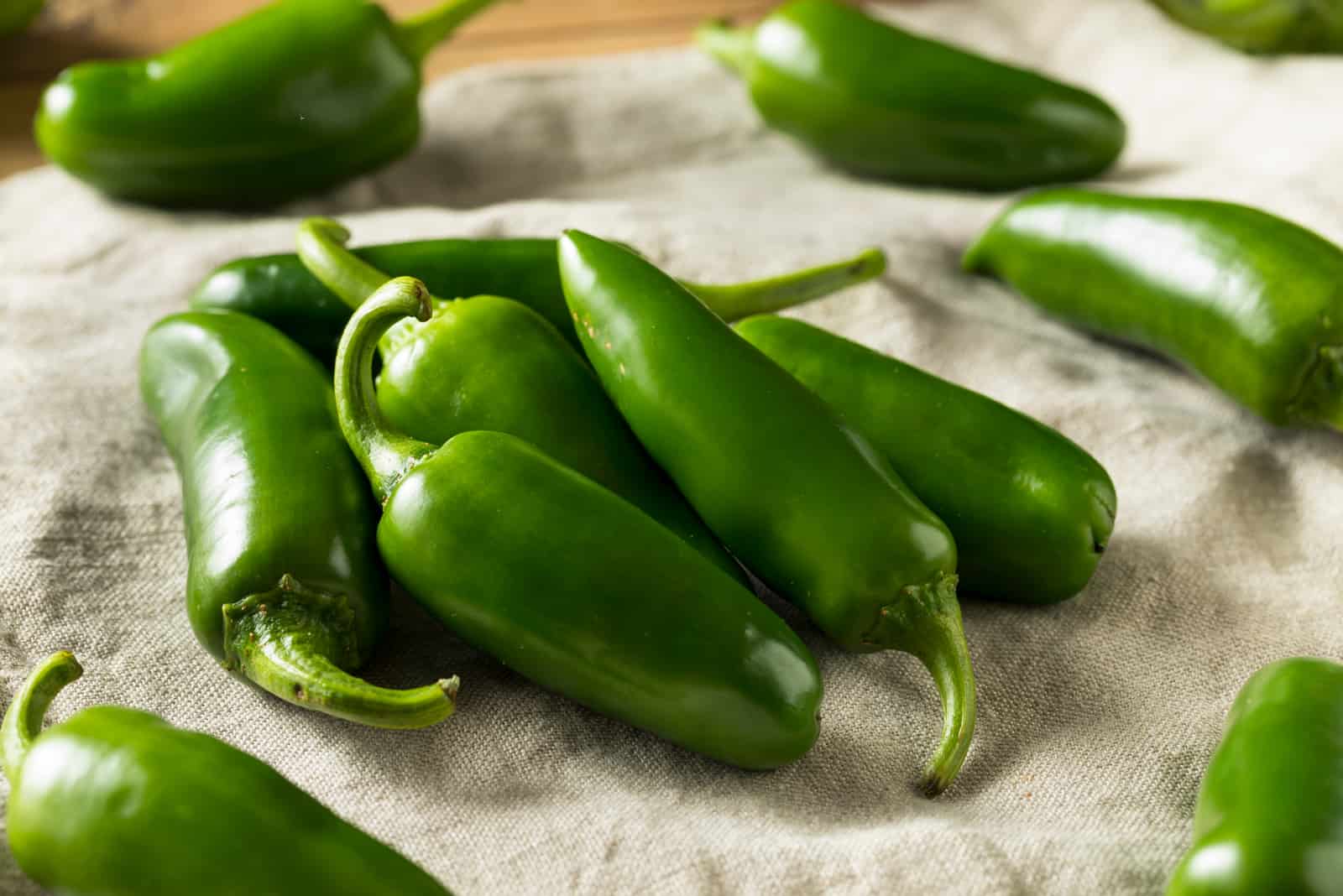
The honest answer to this question is, probably.
Peppers of all kinds have some amazing health benefits as well as being tasty and adding a real kick of spice to delicious foods all around the world.
Jalapenos possess some excellent qualities that are beneficial to our health:
• Antioxidants – they contain compounds that fight free radical particles that can cause cancer.
• Antibacterial – recent research has shown promising results regarding the anti-microbial properties of jalapenos, which means that they could be used to fight bacterial infections.
• Vitamins – including K, C, B (folate), and E.
• Minerals – potassium and manganese.
• Analgesic – compounds within the peppers can block pain receptors in the brain, bringing relief from pain.
• Heart health – jalapenos help to lower cholesterol levels.
• Blood pressure – capsaicin lowers blood pressure and burns fat.
The health benefits of jalapenos are obvious, so you’d be forgiven for assuming that they’d be safe for dogs as well as humans. Unfortunately, the very thing that makes them so amazingly healthy is the same substance that makes them bad for dogs!
This wonder substance is called capsaicin, which is also responsible for the spiciness found in chilis and other types of peppers.
Can dogs eat jalapenos? Sadly, despite the excellent health benefits, capsaicin makes this a bad idea.
Are Jalapenos Toxic To Dogs?
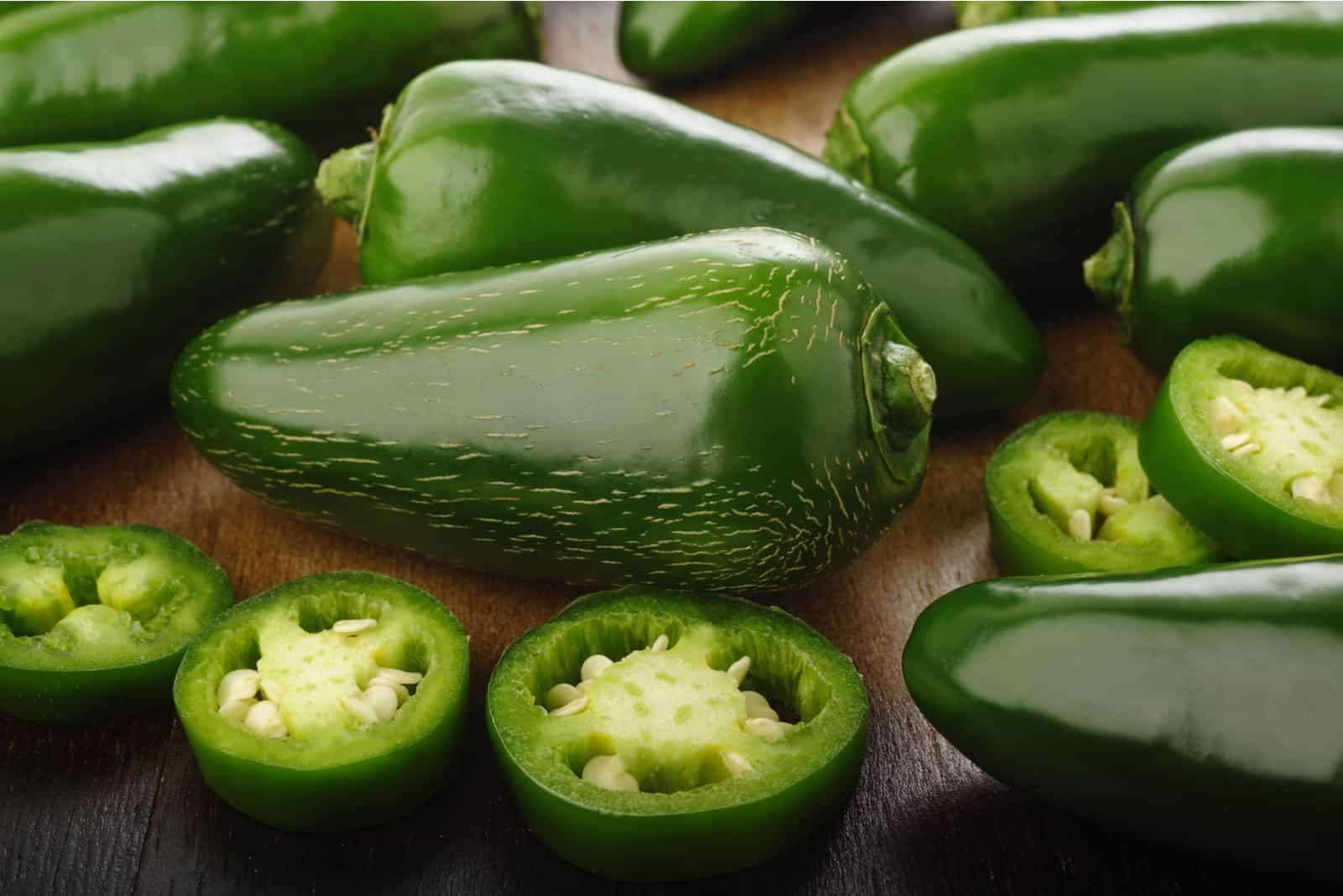
No, they aren’t. Contrary to some reports, jalapenos do not contain any substance that is toxic to dogs.
However, let’s return to the compound called capsaicin.
If you’re a chili eater, you’ll know that feeling when the heat starts to creep across your tongue to the back of your mouth. You’ll also know when you’ve eaten too many, or if the food is just a bit too spicy. You feel that burning sensation in your stomach, and it can become pretty uncomfortable. It might even have some unpleasant after-effects later on when your body has digested the meal.
This is caused by capsaicin; a compound produced by plants in the capsicum family. This is thought to be a result of the natural selection process, which deterred animals from eating certain fruits. Animals have molars that will crush the seeds, whereas birds (that don’t have the same receptors and won’t feel any heat or negative effects in the digestive system) will spread the seeds far and wide in their excrement.
Isn’t nature wonderful?
Anyway, we get a bit of a warning as we can detect the spiciness on our tongue when we eat spicy food. This helps us to decide whether we want to eat any more.
Human tongues have the advantage of being more complex than those belonging to dogs. We have around 10,000 taste buds while dogs only have 1,700. Therefore, we have a much wider taste range than dogs.
The result of this is that dogs probably won’t detect the spicy taste of jalapenos and other hot peppers, though some may be able to feel a bit of heat on the back of the tongue. Dogs aren’t designed for chewing and savoring their food; their teeth are made for biting big chunks and swallowing quickly. It’s about getting as much food into the stomach as they can!
This means that the full effects are felt within the dog’s stomach. Capsaicin is regarded as a chemical irritant despite its excellent health benefits. There’s a good chance that a dog that eats jalapenos will suffer from some unpleasant side effects, such as stomach pain and stomach upset. Vomiting and diarrhea are common in these cases, and can present their own complications as the dog can become dangerously dehydrated.
So, although jalapenos aren’t toxic to dogs, the side effects of eating them can be severe for dogs.
Can dogs eat jalapenos? Well, they’re not toxic, but the evidence shows that it can make them very sick.
Can Dogs Eat Pickled Jalapenos?
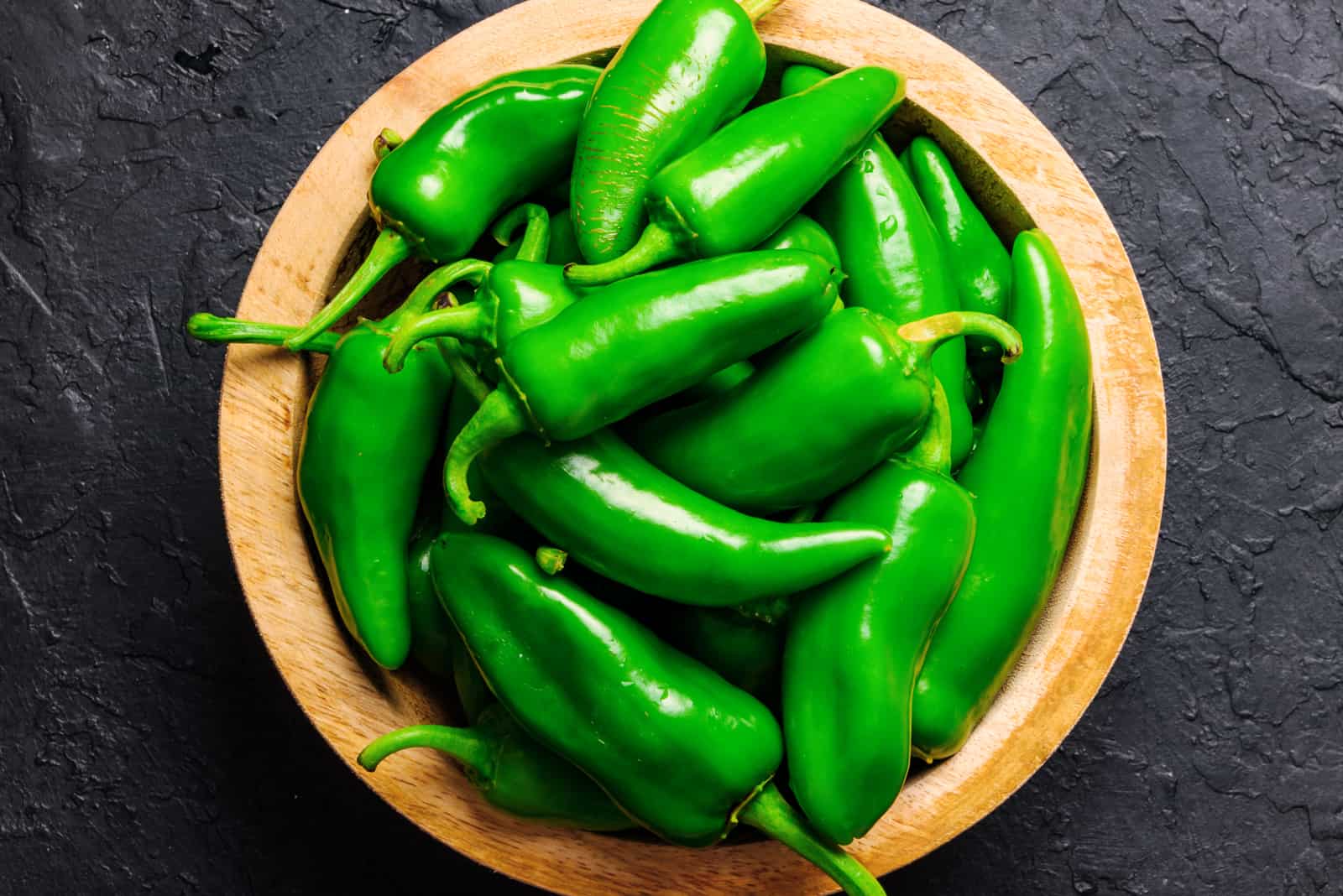
Again, it’s best to avoid giving your dog pickled jalapenos. In fact, it’s best to avoid giving them anything that has been pickled!
We’ve seen why it’s best to avoid feeding your dog any type of spicy pepper. It can play havoc with a dog’s digestive system.
Dogs generally don’t enjoy the smell of pickles or vinegar. In fact, they are naturally designed to avoid anything sharp, tangy, or citrus-like. It’s all part of their ancestry, where they needed to avoid eating foods that might have made them ill.
Then, there’s the fact that many pickled products use brine. Too much sodium is bad news for dogs. Sodium-ion poisoning can be fatal as it attacks a dog’s neurological center and causes the brain to swell.
Also, some pickled jalapenos are packed in a jar with onions or other additives, making them unsuitable for dogs to consume.
Are Dogs Allergic To Jalapenos?

It’s rare, but not impossible for dogs to be allergic to jalapenos.
Allergies occur when the immune system goes into overdrive as it perceives that there is a threat where there isn’t one. The body detects certain proteins entering the system and assumes that they are harmful. It then reacts by producing histamines that can cause the lining of the nose to produce more mucus, the airways to tighten, and the blood vessels to tighten.
It takes time for a body to become allergic; a process called sensitization. The first few times that a body is exposed to allergens, there will be no reaction. After a while, once the immune system has produced antibodies to fight the allergens, there will be a reaction.
The fact is that anyone can develop an allergy to a particular allergen over time.

Photo from @littleyellow_daisy
Reactions vary from extremely mild to life-threatening, when anaphylaxis occurs, which can cause breathing difficulties, anxiety, increased heart rate, and fainting.
Some of the signs to look out for are wheezing, skin rashes, hives, bald patches, vomiting, and coughing.
Can dogs eat jalapenos? Allergic reactions to jalapenos are rare, but not unheard of. It’s best to avoid giving them to dogs anyway.
Can Dogs Eat Jalapeno Chips?

One or two might not harm your dog, but it is not the best idea. Aside from the chili powder coating that could irritate its stomach lining, these are fried, salty snacks that are as unhealthy for dogs as they are for humans.
In fact, the effects are worse for dogs; regular ingestion of fried foods can very quickly lead to pancreatitis and obesity, and salty foods can cause dehydration and sodium poisoning.
On the whole, chips and salty snacks should rarely, if ever, form part of your dog’s diet.
Can Dogs Eat Jalapeno Poppers?

This is a big, big NO.
Recipes for poppers vary, and as delicious as they might look to us, they hold some potentially harmful ingredients for dogs.
Aside from the fact that these are whole jalapenos, which is bad enough in itself, they are filled with things like cheese, meat, and extra spices. Some are then coated in breadcrumbs and fried.
This combination is bad news for our canine friends! Technically, all dogs are lactose intolerant as they lack the enzyme lactase that breaks down lactose proteins for digestion. Though they may cope with small amounts of dairy, it isn’t a good idea to include it in their diet as it could lead to stomach upset.
Then, there’s the meat, which is usually fried ground beef or chunks of fried bacon. Aside from the way it has been cooked, extra spices and seasoning will be added as well as onions and/or garlic.
For most dogs, this is a recipe for disaster. In the short term, you may notice that your dog is suffering from an odd bout of gastrointestinal upset. However, in the long term, you could find that your dog has developed pancreatitis. In many cases, this causes the pancreas to produce enzymes that severely damage the intestinal lining.
Can dogs eat jalapenos? Definitely not in this form!
Can Dogs Eat Spicy Food?
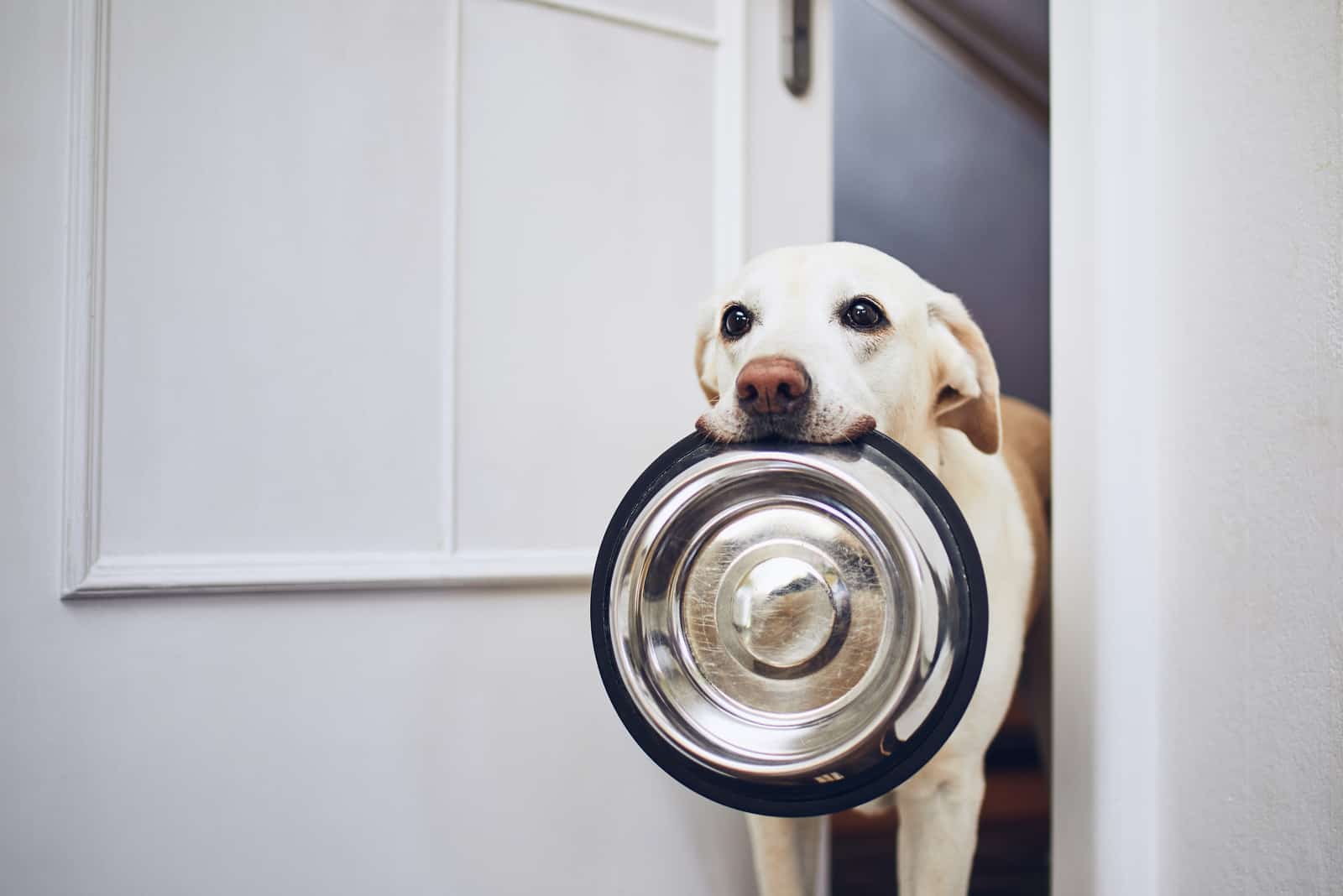
Although you might come across blogs where dog owners boast about how much chili con carne their pooch eats without any ill effects, most experts strongly advise against feeding dogs spicy food.
We’ve seen how spicy peppers can affect them, so why take the risk? Of course, all dogs are different and will (just like humans) have different tastes. But, on the whole, it’s best to avoid giving your dog anything that will upset their sensitive digestive tract.
After all, why would any responsible pet owner want to feed their furry friend something that might cause them to suffer?
It’s best to keep their food plain and avoid anything with chilis, chili powder, or any variety of spicy pepper.
Are Yellow Peppers OK For Dogs?

Bell peppers, or sweet peppers, whether green, yellow, orange, or red, are part of the capsicum family. They are actually known as capsicum in some countries, and they share some of the health benefits that are seen in jalapenos and other chili peppers.
However, they don’t contain anywhere near the same amount of capsaicin, which means that they aren’t spicy at all.
They are safe for dogs to eat, but there are several important things to remember:
• Remove the stalk and seeds as these are difficult to digest and will cause indigestion.
• Steam or puree the peppers to soften the skin as this makes it easier for the dog to eat and digest.
• Never add salt or spices! As we have learned, dogs have a simpler sense of taste, so they won’t need extra seasoning on their food. Also, too much salt can be harmful to them.
• Never cook them with onions or garlic! Both of these can cause severe digestive issues and make your dog seriously ill.
As a general rule, large or medium dogs should eat no more than one-half a pepper at a time, and small dogs should have no more than a quarter. New foods should be introduced gradually, and it is always best to check with your vet before changing a dog’s diet.
These should not be given to them every day, and there is no substitute for their regular dog food, which should provide all the nutrition they require.
Summing Up The Evidence
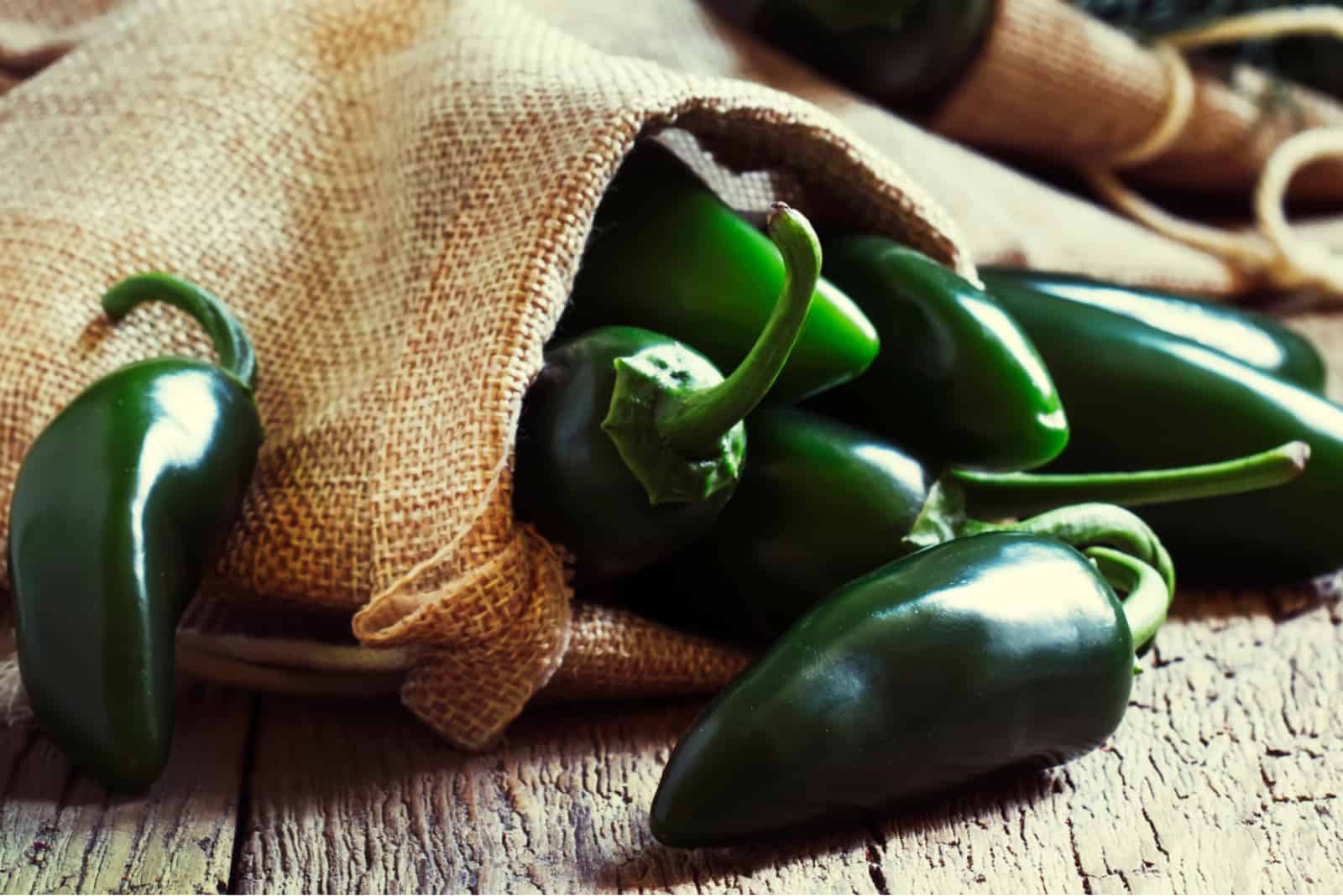
So, can dogs eat jalapenos?
On balance, the best answer is, NO. Although they aren’t toxic to dogs and allergic reactions are rare, it just isn’t worth the risk.
Spicy foods of any kind will irritate the stomach lining and digestive tract. Your dog will probably not taste the pepper, but will certainly feel the burning in their stomach. Aside from potentially causing diarrhea or vomiting, it would be distressing and uncomfortable for them.
If you suspect your dog has consumed jalapeno peppers, spicy food, or any type of chili pepper, then you should seek veterinary advice immediately so that your dog can receive treatment to ease the symptoms.
As much as our furry friends beg to share our food, it’s always best to stick to what’s healthy for them. They’ll be just as thankful for one of their dog treats as they would for a handful of chips, and the treat is far less likely to harm them.
As difficult as it is to resist them, you know that it is for their benefit. Just remember that by denying them those unhealthy snacks, you’re ensuring that they stay around longer!

